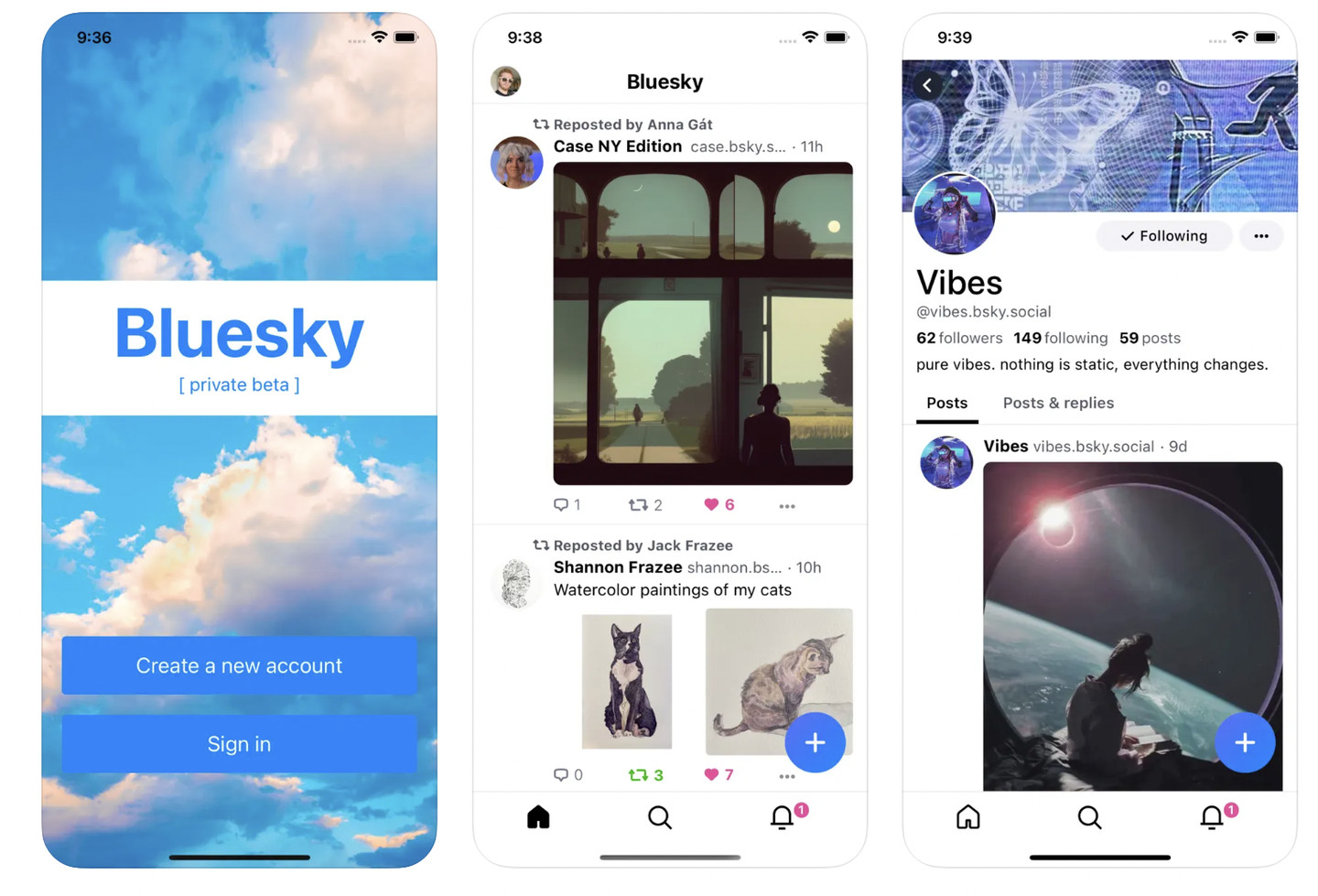Bluesky on Tuesday, Feb. 6, dumped its invite-only system and allowed everyone to open an account, garnering more than one million new users, or ‘newskies’, within 24 hours of the announcement.
The Jack Dorsey-backed decentralized social media network, one of many apps considered an alternative to X, formerly Twitter, has had about three million signups since it launched in private beta a year ago.
Also read: 5 Social Media Platforms Seeking to Dethrone Twitter
Bluesky: Shaky start as user numbers rise
According to publicly available data, Bluesky reached a total of 4.1 million signups as of writing, with the unique user count doubling from Feb. 5–6, when the platform became available to the public.
Bluesky CEO Jay Graber said the platform “welcomed 550,000 newskies” in 22 hours since the public access. “[We are] testing every piece of the infrastructure,” she wrote in a post on the app.
But the public launch didn’t go as smoothly after Bluesky suffered an outage that “put the network into a read-only mode” for several hours. The company blamed the outage on increased user activity.
“We’re seeing a lot of new signups, and some servers have hit their limits,” said the team in a post on Bluesky.
Despite the initial technical challenges, people have reacted rather positively to the new Bluesky that anyone can use. Others viewed the public launch as a chance to create a less toxic version of X.
“My main complaint with the way Twitter has devolved is the lack of utility it has, (sic)” one user said on Bluesky.
“I used it for things like sports news, etc., but it truly was a resource for safety news, downed lines, fire updates, road closures, and the like. Twitter took away its most important usage: real connection in real time.”

What is Bluesky?
In 2019, Twitter co-founder and former CEO Jack Dorsey created a team to work on Bluesky, an open-source platform, which means that anyone can modify it. Bluesky launched as an invite-only site in February 2023 after raising $13 million from investors, including Dorsey.
Bluesky built its AT Protocol,whichd is designed to give people more control over their data as well as the ability to move their profiles between different networks.
Twitter users who enjoy the site’s basic features, such as posting, replying, and retweeting, will find Bluesky to be a familiar and easy-to-use platform, according to people who have tested the site.
Bluesky offers the added benefit of data portability, allowing users to easily move their data from, say, X or Mastodon to Bluesky. But it lacks some of the features that users have come to expect from X, such as direct messages and the ability to make lists.
While the likes of Facebook and Instagram are controlled by one central authority, Bluesky is installed on thousands of computer servers, largely run by volunteer administrators or businesses that join their systems together in a “federated network.”
Catching up with the competition
Bluesky is seeing a surge in user numbers, but it is still very small compared to rivals like Threads and Mastodon, which boast over 130 million and 8.7 million monthly active users, respectively. As for X, monthly active users peaked at over 528 million in 2023.
By comparison, Bluesky had 1.6 million monthly active users (this figure is different from the number of total signups, which includes all users, even inactive ones) and 25,000 custom feeds for people to choose from, according to Graber.
During various times when Elon Musk stirred up trouble for X, people sought out an invitation to join Bluesky, hoping to switch to a more friendly social media platform.
Bluesky logged three million signups during that invite-only era, but some observers may consider the failure to drop the invites then a missed chance to challenge X’s dominance meaningfully. There are questions about whether it would be able to do so now.
Graber, the Bluesky CEO, told The Verge that it took a long time to open the app to the public because the firm wanted to complete certain moderation features and build stable infrastructure.
As MetaNews previously reported, Bluesky was criticized in July last year for its failure to crack down on racist groups. People complained about the platform’s registered handles containing racial insults in them and the suppression of black voices.
Graber revealed that Bluesky is planning to launch another update later this month that will allow individual users or organizations to create their own content moderation services. Other users can subscribe to these services, she said.
“For example, a fact-checking organization can run a labeling service and mark posts as ‘partially false,”misleading,’ or other categories,” Bluesky wrote in a blog post.
“Then, users who trust this organization can subscribe to their labels. As the user scrolls through the app, any labels that the fact-checking organization publishes will be visible on the post itself.”
In the inevitable case that someone builds a service on Bluesky that could be dangerous, Graber tells TechCrunch: “First of all, don’t promote it; don’t send it out to more eyeballs. And then you can disconnect from it; don’t link out to it. So make it less discoverable.”









 and then
and then